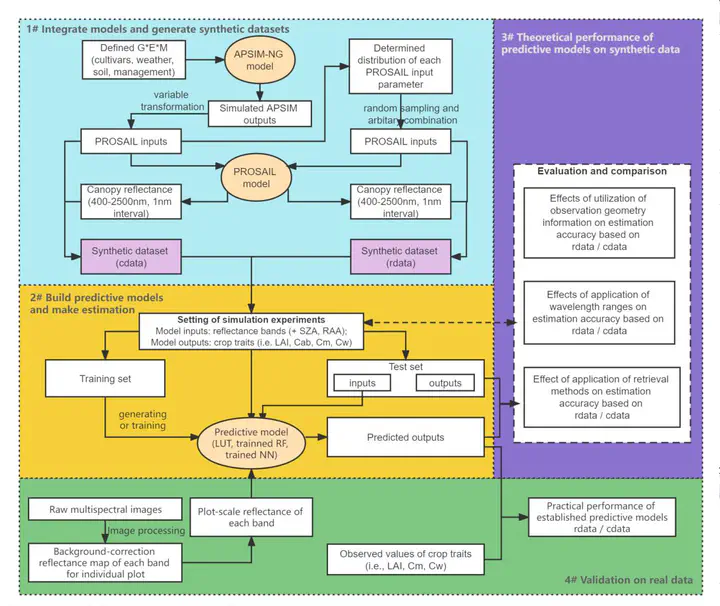Integrating crop growth model and radiative transfer model to improve estimation of crop traits based on deep learning

Abstract
A major challenge for the estimation of crop traits (biophysical variables) from canopy reflectance is the creation of a high-quality training dataset. To address this problem, this research investigated a conceptual framework by integrating a crop growth model with a radiative transfer model to introduce biological constraints in synthetic training dataset. In addition to the comparison of two datasets without and with biological constraints, we also investigated the effects of observation geometry, retrieval method, and wavelength range on estimation accuracy of four crop traits (leaf area index, leaf chlorophyll content, leaf dry matter, and leaf water content) of wheat. The theoretical analysis demonstrated potential advantages of adding biological constraints in synthetic training datasets as well as the capability of deep learning. Additionally, the predictive models were validated on real unmanned aerial vehicle-based multi-spectral images collected from wheat plots contrasting in canopy structure. The predictive model trained over a synthetic dataset with biological constraints enabled the prediction of leaf water content from visible to near infrared range based on the correlations between crop traits. Our findings presented the potential of proposed conceptual framework in simultaneously retrieving multiple crop traits from canopy reflectance for applications in precision agriculture and plant breeding.